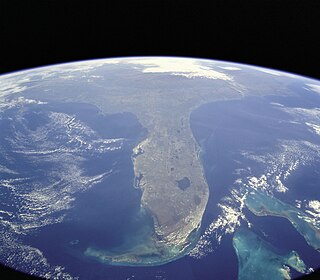
An encyclopedia or encyclopaedia is a reference work or compendium providing summaries of knowledge, either general or special, in a particular field or discipline. Encyclopedias are divided into articles or entries that are arranged alphabetically by article name or by thematic categories, or else are hyperlinked and searchable. Encyclopedia entries are longer and more detailed than those in most dictionaries. Generally speaking, encyclopedia articles focus on factual information concerning the subject named in the article's title; this is unlike dictionary entries, which focus on linguistic information about words, such as their etymology, meaning, pronunciation, use, and grammatical forms.

The Encyclopædia Britannica is a general knowledge English-language encyclopaedia. It has been published by Encyclopædia Britannica, Inc. since 1768, although the company has changed ownership seven times. The encyclopaedia is maintained by about 100 full-time editors and more than 4,000 contributors. The 2010 version of the 15th edition, which spans 32 volumes and 32,640 pages, was the last printed edition. Since 2016, it has been published exclusively as an online encyclopaedia.
February 25 is the 56th day of the year in the Gregorian calendar; 309 days remain until the end of the year.
February 8 is the 39th day of the year in the Gregorian calendar; 326 days remain until the end of the year.

Imam is an Islamic leadership position. For Sunni Muslims, Imam is most commonly used as the title of a prayer leader of a mosque. In this context, imams may lead Islamic prayers, serve as community leaders, and provide religious guidance. Thus for Sunnis, anyone can study the basic Islamic sciences and become an Imam.
June 6 is the 157th day of the year in the Gregorian calendar; 208 days remain until the end of the year.

Rouen is a city on the River Seine, in northwestern France. It is the prefecture of the region of Normandy and the department of Seine-Maritime. Formerly one of the largest and most prosperous cities of medieval Europe, the population of the metropolitan area is 702,945 (2018). People from Rouen are known as Rouennais.

Pope Cornelius was the bishop of Rome from 6th or 13th March 251 until his martyrdom in June 253. He was pope during and following a period of persecution of the church, while a schism occurred over how repentant church members who had practiced pagan sacrifices to protect themselves could be readmitted to the church. He agreed with Cyprian of Carthage that those who had lapsed could be restored to communion after varying forms of Reinitiation and Penance. This position was in contrast to the Novatianists, who held that those who failed to maintain their confession of faith under persecution would not be received again into communion with the church. This resulted in a short-lived schism in the Church of Rome that spread as each side sought to gather support. Cornelius held a synod that confirmed his election and excommunicated Novatian, but the controversy regarding lapsed members continued for years.

The Encyclopædia Britannica Eleventh Edition (1910–1911) is a 29-volume reference work, an edition of the Encyclopædia Britannica. It was developed during the encyclopaedia's transition from a British to an American publication. Some of its articles were written by the best-known scholars of the time. This edition of the encyclopaedia, containing 40,000 entries, has entered the public domain and is readily available on the Internet. Its use in modern scholarship and as a reliable source has been deemed problematic due to the outdated nature of some of its content. Modern scholars have deemed some articles as cultural artifacts of the 19th and early 20th centuries. Nevertheless, the 11th edition has retained considerable value as a time capsule of scientific and historical information, as well as scholarly attitudes of the era immediately preceding World War I.

Under the Ancien Régime, the Kingdom of France was subdivided in multiple different ways into several administrative units, until the National Constituent Assembly adopted a more uniform division into departments (départements) and districts in late 1789. The provinces continued to exist administratively until 21 September 1791.
An online encyclopedia, also called an Internet encyclopedia, is a digital encyclopedia accessible through the Internet. Examples include Encyclopedia.com since 1998, Encarta from 2000 to 2009, Wikipedia since 2001, and Encyclopædia Britannica since 2016.

Pan-African colours is a term that may refer to two different sets of colours:

The flag of Gabon is a tricolour consisting of three horizontal green, yellow, and blue bands. Adopted in 1960 to replace the previous colonial flag containing the French Tricolour at the canton, it has been the flag of the Gabonese Republic since the country gained independence that year. The design of the present flag entailed the removal the Tricolour and the widening of the yellow stripe at the centre.

A buttress is an architectural structure built against or projecting from a wall which serves to support or reinforce the wall. Buttresses are fairly common on more ancient buildings, as a means of providing support to act against the lateral (sideways) forces arising out of inadequately braced roof structures.
Encyclopædia Britannica, Inc. is the company known for publishing the Encyclopædia Britannica, the world's oldest continuously published encyclopaedia. The company also owns the American dictionary publisher Merriam-Webster. Originally founded in Edinburgh, Scotland and historically British, the company is now based in Chicago, Illinois, in the United States.

An inland port is a port on an inland waterway, such as a river, lake, or canal, which may or may not be connected to the sea. The term "inland port" is also used to refer to a dry port.
This is a list of members of the Politburo Standing Committee of the Chinese Communist Party who have served 11 years or more. One table ranks them according to continuous service, and another table ranks members according to total years as members. Zhou Enlai served the longest, but Mao Zedong had the continuously longest service of any member.
The national symbols of England are things which are emblematic, representative, or otherwise characteristic of England or English culture. Some are established, official symbols; for example, the Royal Arms of England, which has been codified in heraldry. Other symbols may not have official status, for one reason or another, but are likewise recognised at a national or international level.

A peninsula is a landform that extends from a mainland and is surrounded by water on most sides. Peninsulas exist on each continent. The largest peninsula in the world is the Arabian Peninsula.












